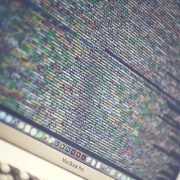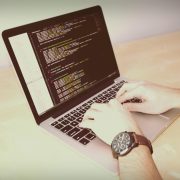As a seasoned or upcoming programmer, it is imperative for you to have a firm grasp of some of the major legal aspects of software development and what they mean to the software industry. When it comes to knowing the extent of your intellectual property rights, ignorance is inexcusable. I have run out of fingers counting the number of software developers who have made the regrettable mistake of not paying close attention their encryption rights, and have ended up paying big time. So, whether you’re a freelance developer or an employee working under a software enterprise, here is what you need to acquaint yourself with;
Issues surrounding software patents
A patent is simply a legal jurisdiction barring other people from making, selling or using your creation for a specified amount of time. As a software developer, it’s possible for you to patent your work the same way engineers do to protect the design specifications of new inventions. Nonetheless, to obtain a patent for your creation, the algorithm or software has to be over 95% original and you’re also required by the law to disclose to the public the ‘recipe’ of your project. Nowadays it’s become easier to purchase patents as they are even available online. If you have an upcoming unique and novel project, well, it’s high time you obtained a patent protection if you’re planning on marketing it in the future.
What about copyright protection?
One of the major misconstrued legal aspects of software development revolves around copyright protection and what it entails. For starters, a copyright is basically an exclusive set of rights given to the owner of the creation that allows them to make copies of their work and distribute them. The same right, however, bars other from doing the same. The copyright protection also covers any derivative works that could be based on the program created.
So what’s the difference between a patent and a copyright? While a patent shields you from any outright imitation, the copyright act is only useful in restricting others from copying your software’s exact source code or graphics. That means if there is no evidence of exact duplication, a copyright protection is likely to be ruled out in a court of law.
What about a trade secret?
One of the loopholes of patents and copyright is that they are limited for only a specified period, mostly about 20 years. After that, the owner of such registrations loses the right to their intellectual property, and the public could duplicate and use it as they please.
Take for example if you wrote a program that predicts the forex with almost 100% accuracy. A patent or copyright will only protect your creation for 15–20 years and then competitors would be free to sell, modify and distribute it.
However, if you decided to keep it as a trade secret, you can control who uses your code while limiting others from accessing it. With this kind of plagiarism and privacy protection, it’s possible to remain the exclusive owner of your creation indefinitely.
Nevertheless, to effect a trade secret agreement, it essential that the software developer takes a number of confidentiality measures first. This includes;
a.) Not disclosing the source code to the public, either directly or indirectly.
b.) Limiting access to the executable code.
c,) Protecting the creation with robust password algorithms.
Going by the existing legal aspects of software development, if your work qualifies for a trade secret agreement, then you could restrict others from ever using or trading your code without a written consent.





